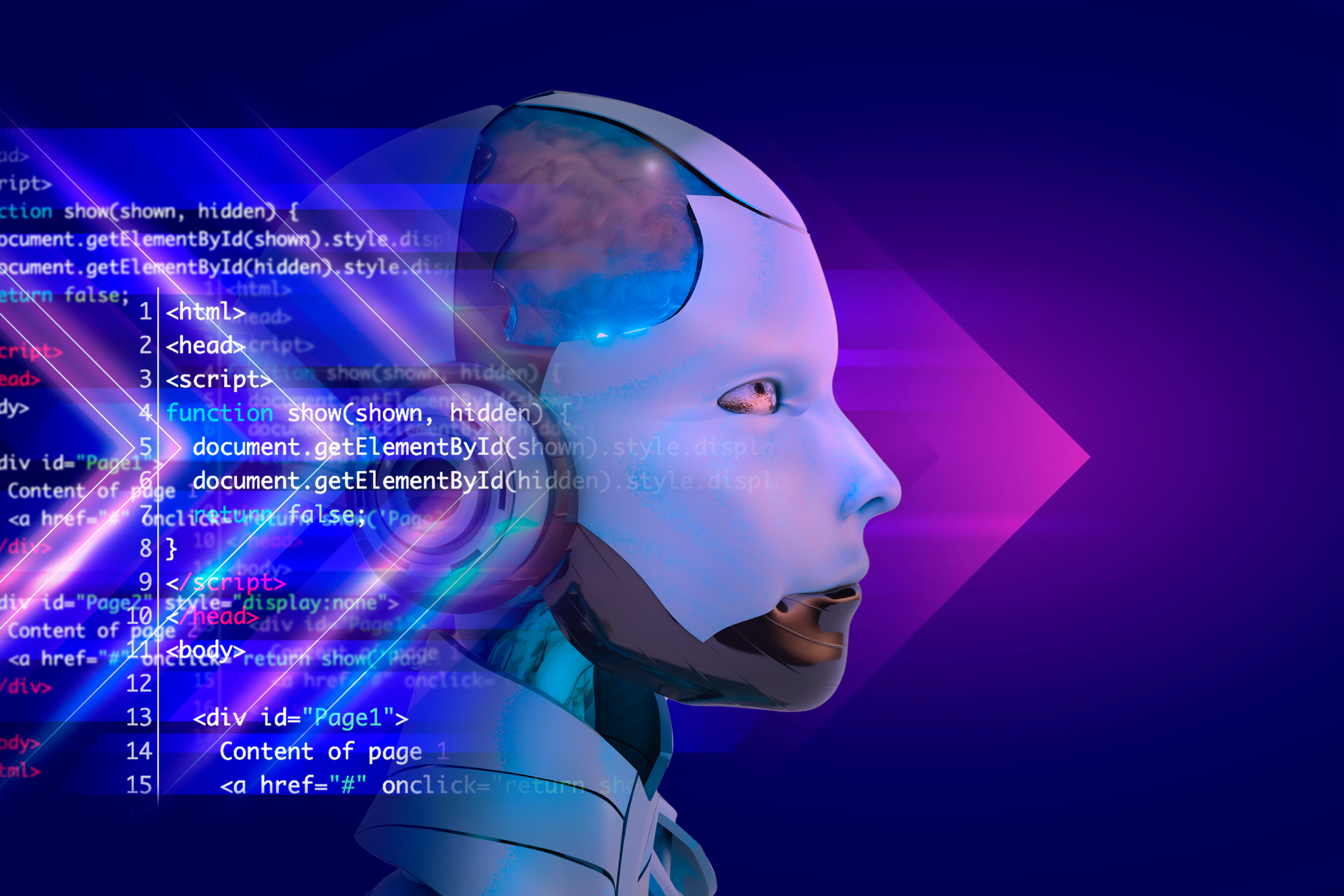
Front End Developers in the Age of AI
Front-end developers‘ roles in web development have been fortified in recent times due to the increased focus on incredible user experience. With the rising number of web clients, organisations are trying to make sites that look great as well as function well. The front-end developers‘ job is to develop the piece of the site that is visible to the client and guarantee that it is easy to use and outwardly engaging.
Moreover, the growth of artificial intelligence has reformed the manner in which organisations operate, and its impact on different businesses is growing quickly. Grand View Research’s analysis indicates that the worldwide AI industry is projected to increase at a compound annual growth rate of 46.2% to reach an astounding $390.9 billion by 2025. Medical care, banking, retail, and transportation are only a couple of the areas that artificial intelligence has previously revolutionised, and it is anticipated to do so in upcoming years.
This article will examine the role of front-end developers in web development in further detail the idea of artificial intelligence and how it is beginning to affect various sectors.
The Impact of AI on Front-End Development
The technology field is continually changing, and one of the most effective improvements lately has been the rise of artificial intelligence. This innovation isn’t simply a popular trendy buzzword; it fundamentally influences front-end development. Let’s understand how AI automates and improves various aspects of front-end development, ushering in a new era for developers.
The potential benefits of AI for front-end developers

1. Increased Productivity
AI isn’t just a helper; it’s a game-changer. Developers can accelerate their workflow with smart code completion and predictive coding suggestions. Imagine typing just a few characters and having AI predict and complete entire lines of code.
As a result, less time is used on repetitive tasks. It also surges in productivity and opens up space for innovation and problem-solving skills. As per statistics – AI tools are being used by 46.4% of front-end developers to assist with at least 30% of their work.
2. Quality Enhancement
Code quality is the foundation of any project. AI isn’t just smoothing out the development cycle but also upgrading the final result’s quality. AI tools act as an additional set of vigilant eyes by analysing patterns and recognising likely bugs. This results in cleaner, more efficient code and decreased debugging time.
3. Improving User Experience
Front-end development isn’t just about lines of code; it’s about crafting an experience. AI grasps client behaviour and preferences, empowering engineers to make more customised and intuitive interfaces. From recommending layout designs to predicting client interactions, AI makes sites and applications that resonate with the end clients.
The potential challenges of AI for front-end developers
1. Job Displacement Concerns
As artificial intelligence turns into a fundamental piece of front-end development, concerns about job displacement arise. However, seeing this as an evolution instead of a danger is critical. While a few routine errands might be automated, the demand for talented developers to harness and guide AI will just grow. Adaptability is the way to flourishing in this unique landscape.
2. Upskilling Imperative
The symbiotic relationship between developers and AI requires a shift in skill sets. Developers must embrace continuous learning to stay ahead. Familiarity with AI tools, machine learning basics, and a nuanced understanding of how AI integrates into front-end workflows will be indispensable. The future belongs to those who embrace change and work on new and important skill.
The Skills and Responsibilities of Front-End Developers in the Age of AI
As technology evolves, so do the skills and responsibilities expected of a front end web developer. Let’s unravel the essential skills and shed light on evolving responsibilities, as well as front-end development resources. Also, explore how front-end developers can navigate the AI landscape while staying ahead of the curve
Essential Skills for Front-End Developers
1. HTML, CSS, and JavaScript Mastery
The foundation remains paramount. Proficiency in HTML, CSS, and JavaScript code is the bedrock of front-end development. Clean, semantic HTML structures, elegant CSS styling, and dynamic JavaScript interactions lay the groundwork for compelling user experiences.
2. Responsive Design Expertise
With the myriad of devices in use today, a front end developer must master the art of responsive design. It ensures a seamless experience across various screen sizes, which demands a keen eye for layout and usability.
3. Version Control (Git)
Collaboration is key in modern development. Using version control, such as Git, enables developers to work seamlessly in teams. It tracks changes and resolves conflicts efficiently.
4. Basic Knowledge of Back-End Technologies
The joint effort between front end and back end developers is pivotal. While not expected to be specialists, having a fundamental understanding of back-end technologies cultivates powerful communication and problem-solving.
Evolving Responsibilities in the Age of AI
The use of AI in digital environments is expanding front-end developers’ roles beyond traditional boundaries. As follows:
1. Integration of AI-driven Components
Recommendation engines and chatbots are examples of AI features that front-end developers are increasingly adding to websites. It’s getting more and more important to know how to integrate AI-driven features with user interfaces.
2. Data Visualisation Proficiency
With AI generating vast datasets, a front-end engineer must be adept at creating meaningful data visualisations. Translating complex information into user-friendly visuals enhances the overall user experience.
3. Accessibility and Inclusivity Advocacy
As AI technologies advance, front-end developers are essential to making sure websites are user-friendly for everyone. Making inclusivity a priority becomes both a duty and a moral need.
The Importance of Lifelong Learning
Front-end engineers have adopted lifelong learning in an industry that is always innovating. AI technologies are developing quickly, so keeping ahead of the curve means being committed to constant progress. Taking online classes and maintaining ties with the developer community are essential strategies for remaining updated.
Adapting and Thriving in the AI Era
To thrive in the age of AI, a front end developer should:
– StayCurious: Innovation is fuelled by curiosity. Study new trends, and technologies on a regular basis.
– Develop a Wide Range of Skills: Welcome flexible behaviour. Acquire knowledge of new programming languages and tools to enhance your proficiency.
– Network and Collaborate: To remain in touch and informed, interact with the developer community, go to conferences, and take part in group projects.
– Iterate and experiment: Experimentation is the appealing aspect of front end development. Overcome your fear of failing—it’s an essential step on the path to success.
Case Studies of AI-Powered Front-End Development Tools

Let’s delve into three noteworthy case studies where AI-powered tools – OpenAI Codex, CodeT5, and Uizard – change the scene.
1. OpenAI Codex
OpenAI Codex, a wonder of artificial intelligence, isn’t simply a device; it’s a mystery. Fuelled by an immense vault of code and language, including Ruby, TypeScript, Python, JavaScript, PHP, and Go. You might utilise it to make full functions or even develop programs. It changes complicated developer language into alluring code snippets.
Features:
– Translates natural language to code.
– Supports multiple programming languages.
– Generates code snippets with unprecedented accuracy.
How it Empowers Front-End Developers:
– Boosts productivity by reducing coding time.
– Enables developers to focus on design and functionality.
– Acts as a co-pilot for coding adventures.
2. CodeT5
This programming language model is an open-source creation by researchers from Salesforce; it’s the maestro of code generation. This AI powerhouse doesn’t just mimic; it understands the logic and crafts impeccable code. From HTML structures to JavaScript functions, CodeT5 is the silent virtuoso in the developer’s orchestra.
Features:
– Utilises Transformer architecture for code understanding.
– Customised for various programming languages.
– Adaptable to diverse coding tasks.
How it Empowers Front-End Developers:
– Improves code quality with context-aware suggestions.
– Streamlines repetitive coding tasks.
– Shortens the learning curve for new technologies.
3. Uizard
Uizard, a name resonating with innovation, marries design thinking with code execution. This AI understands sketches and screenshots, turning them into interactive code. A Front end web developer no longer need to be caught in the design-to-code labyrinth; Uizard is the bridge between imagination and implementation.
Features:
– Converts sketches and wireframes into code.
– Supports integration with design tools.
– Facilitates collaboration between designers and developers.
How it Empowers Front-End Developers:
– Accelerates the design-to-code process.
– Encourages seamless collaboration between design and development teams.
– Reduces manual coding efforts, letting developers focus on refining the user experience.
How these tools are helping front-end developers to be more efficient and effective

AI-powered tools are transformative in front-end development.
- Efficiency Boost – Developers experience a significant boost in efficiency. With the automation of mundane tasks, one may concentrate more intently on addressing complicated issues.
- Improved Collaboration – The interaction between human ingenuity and AI prowess raises collaboration. Designers and developers can communicate seamlessly, translating ideas into reality faster.
- Continuous Learning – AI tools, like CodeT5 and Uizard, continuously learn from user interactions. This means they evolve, becoming more adept at understanding and implementing user requirements.
The Future of Front-End Development with AI
As we get into the possibilities AI holds for front-end developers, it becomes clear that this dynamic duo is set to redefine the way we build and interact with digital interfaces. As per SEMRush research – 54% of CEOs reported higher office productivity after implementing AI.
The potential future of AI in front-end development
Imagine a world where web pages and web applications can adapt to user preferences seamlessly. AI brings this dream closer to reality. From intelligent chatbots to personalised user experiences, the potential applications are vast.
Full-stack developer, traditionally reliant on human input and coding finesse, is now stepping into an era where AI algorithms can automate repetitive tasks. This means more time for developers to focus on innovation and creativity rather than mundane coding chores.
The Continued Impact on Front-End Developers
The field of front end web development is changing, and artificial intelligence is at the core of this transformation. AI-driven tools are optimising the development process, increasing its effectiveness and accessibility. Front-end developers will increasingly find themselves collaborating with intelligent algorithms to improve user interfaces and experiences.
As AI evolves, so does its ability to analyse user behaviour. A front-end developer armed with this data can create interfaces of web page that adapt in real-time. This offers a tailor-made experience for each user. The days of static websites are fading, making room for dynamic and responsive interfaces that cater to individual preferences.
AI is not here to replace a front end developer; instead, it’s a valuable ally. AI can now handle routine tasks such as code optimisation and even design suggestions. This allows developers to focus on the strategic aspects of their work.
Recommendations for front-end developers on how to prepare for the future of AI
Front-end and back end developers must get ready for a change in their skill set in this age of AI integration. The following advice can help you maintain an advantage in the game:
– You can familiarise yourself with AI-powered tools that automate coding tasks and content management systems. This not only boosts efficiency but also opens avenues for more creative pursuits.
– Stay updated on AI advancements. Attend workshops and online courses. Plus, engage with the AI community to understand how these technologies can complement your skill set.
– AI works with humans, not against them. Develop a cooperative mentality where you collaborate with AI algorithms to get the best outcomes.
– The tech industry is changing quickly. Be flexible and eager to pick up new skills when they become available.
|
Discover the most relevant agencies for your project based on your own specific requirements.
Find an agency!Conclusion
The advancement of technology, particularly web development, is greatly aided by artificial intelligence. The fusion of front-end development and AI holds immense potential for making creative and easy-to-understand web experiences.
A front end web developer should adjust by acquiring new skills and encouraging collaboration. The future of front-end development lies in a harmonious partnership between human creativity and artificial intelligence proficiency. It guarantees the continued evolution of digital interfaces for ideal client fulfilment.





